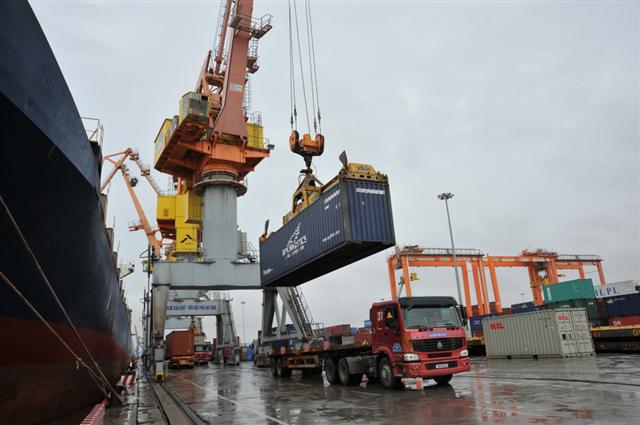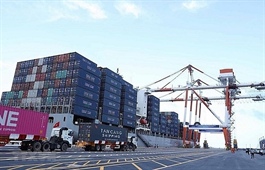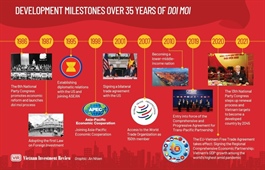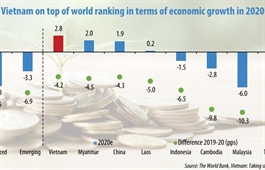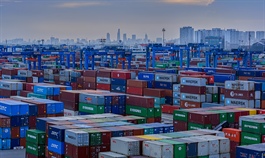Minister praises record 2020 trade surplus
Minister praises record 2020 trade surplus
Foreign trade and international economic integration were the highlights of Vietnam’s 2020 economic performance. Vietnam Economic News’ Phuong Lan discussed this with Minister of Industry and Trade Tran Tuan Anh.
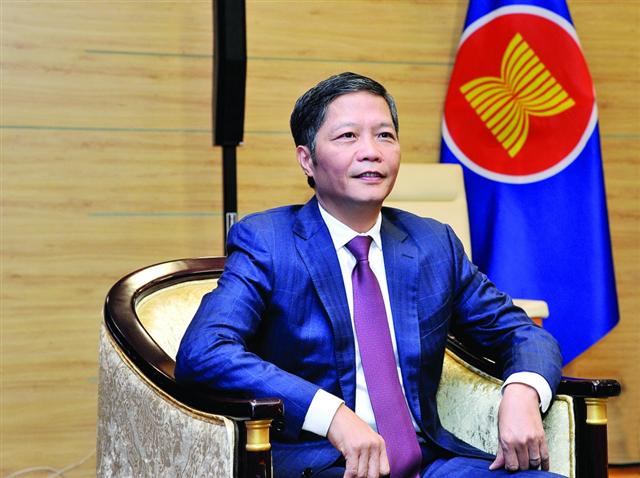
Minister of Industry and Trade Tran Tuan Anh
|
Vietnam fulfilled its 2016-2020 import and export targets ahead of schedule despite the severe effects of the pandemic in 2020. What is your assessment of the country’s foreign trade achievements?
Foreign trade was impressive in 2016-2020. In 2020, Vietnam exported goods worth an estimated US$281.5 billion, up 6.5 percent from 2019, and became a world leader in terms of export growth despite the Covid-19 pandemic that caused the vast majority of economies worldwide to experience negative growth.
Over the past three consecutive years, the average growth of domestic enterprises was higher than that of foreign invested ones. I believe that this trend will continue and be promoted with the implementation of a series of free trade agreements (FTAs) and other international integration frameworks.
Vietnam set a target of balancing export and import values in 2020 but it has accumulated a trade surplus annually since 2016, posting a record trade surplus of US$19.1 billion in 2020. This is a very impressive achievement. Vietnam suffered from a trade deficit for many years prior to the 2016-2020 period.
How did FTA markets contribute to Vietnam’s foreign trade achievements?
In 2016-2020, Vietnam made outstanding efforts in market approach and opening, especially related to markets with which the country signed an FTA, including the Comprehensive and Progressive Agreement for Trans-Pacific Partnership (CPTPP), the EU-Vietnam Free Trade Agreement (EVFTA), and the Regional Comprehensive Economic Partnership (RCEP), among others.
The EVFTA bloc accounts for 30 percent of the world’s gross domestic product (GDP), while the RCEP community is a 2.2 billion consumer market and represents more than 30 percent of the global GDP, meaning that Vietnam can access markets representing 60 percent of the global GDP when implementing EVFTA and RCEP agreements, benefitting from high tariff reductions.
Market approach and opening have helped increase production capacity and export value. In 2016 Vietnam had only 26 exports yielding more than US$1 billion each, and the country currently has 31 such exports, with the number of exports yielding US$5 billion each increasing from less than 10 to 17.
|
Economists and Prime Minister Nguyen Xuan Phuc said FTAs have paved the way for Vietnam to develop foreign trade. What do you think about this?
Prime Minister Nguyen Xuan Phuc compared the EVFTA to an expressway. A matter of concern is how to make all “means of transport access and run on this highway”.
International integration brings both opportunities and challenges. It is very important to continue administrative reform and improve legal institutions towards maximizing convenience and benefit for residents and businesses.
This will allow Vietnam to succeed not only in international integration but also reach sustainable development targets to become a modern, industrialized country by 2045 as Party General Secretary Nguyen Phu Trong said.


